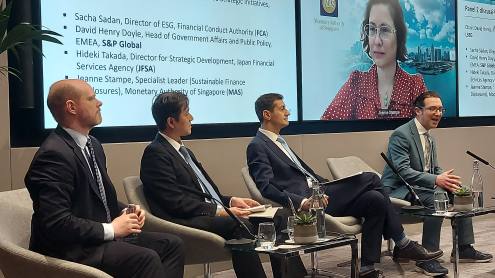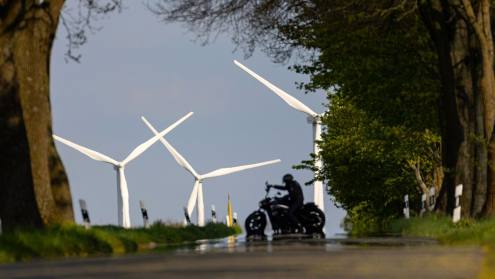Financial institutions have an important role to play in driving sustainability in emerging markets, concludes a white paper published this month by Commerzbank. Christian Toben, the bank’s head of financial institutions in emerging markets, spoke to The Banker about the challenges and opportunities of bringing emerging markets along with the environmental, social and governance (ESG) agenda.
ESG is generally bandied about as a homogeneous unit. Yet, in reality, it contains three separate goals that do not necessarily go hand-in-hand and whose pertinence are skewed differently depending on the region in question.
“Emerging markets have less stringent and less complicated regulatory requirements than Europe, and their banking and societal needs are totally different,” says Mr Toben. While in Europe, the ‘E’ is generally at the forefront of considerations, the ‘S’ is very important for emerging markets — and the more emerging they are, the more they are focused on ‘S’, he says. “And an ‘S’ goal does not necessarily mean an ‘E’ goal.”
Banks in emerging markets started to engage with ESG a few years ago, says Mr Toben, with the first issuance of green bonds. The main consideration for them was not sustainability, but whether there was a financial advantage in engaging with the agenda. “There was no regulatory pressure, so the primary question was: ‘Can we get something cheaper if it is green?’,” he says. “The next questions were: ‘What exactly do we have to do, what compliance and governance is needed and do I have enough capacity?’”
an ‘S’ goal does not necessarily mean an ‘E’ goal
Finance ministries in many emerging markets were put off engaging with ESG as they were concerned that failure to comply with certain standards could jeopardise their international reputation, explains Mr Toben. In response, “some players started to adjust ESG standards to meet their own requirements and abilities”.
He cites “a bank in west Africa that issued a small, local green bond in the local currency, and made requirements they felt comfortable with”. The issuance was a success and the bank also emerged with “a good marketing story”, says Mr Toben. With such actions, however, “we will not convert emerging markets to sustainable finance,” he believes. “While marketing and public relations can be a component [of green finance], they should not be the driver.”
Bigger drivers
The big question, and one that it is not easy to answer, is what the driver should be.
“If local regulation in emerging markets is not demanding enough, does it make sense for advanced economies to place regulation on their shoulders?” asks Mr Toben. He does not believe this is the solution, insisting “they have enough problems and challenges, especially in the current climate”.
He highlights the food and fertiliser shortages that have hit some African countries since Russia’s invasion of Ukraine, and a lack of foreign aid currently. These shortages mean “we are running the risk of democracies being lost in Africa,” says Mr Toben, who argues that the civil unrest and fear that comes with mass food shortages have the potential to topple governments.
Instead of placing strict regulations on emerging markets to force them to go green, Mr Toben advocates incentives such as green energy partnerships. “We say, if you want to sell to Europe you have to comply with certain standards, but we don’t make them too complicated. We need to think in advanced markets whether we want to place all our wind turbines in Europe to be energy independent, or do we want to integrate emerging markets into our sourcing capacity?”
The financing of big clean-energy infrastructure projects in emerging markets need support and guarantees from a range of actors, including commercial banks in all markets, multilateral development banks and export credit agencies, says Mr Toben. Filling the financing gap of several trillion euros to meet the 2030 Sustainable Development Goals and the commitments of the Paris Agreement can only be closed “if we partner up,” he insists.
Working more closely together also includes helping transfer knowledge to lower income countries, says Mr Toben. This month, Commerzbank will hold seminars with banks in various emerging markets to explain how ESG ratings work. “We want to show local banks the advantages of applying for an ESG rating so we can offer them, for example, rating-linked loans,” he says. “If their rating improves, we might be able to improve the quality of the loan.” Such incentives are vital, believes Mr Toben: “It is difficult to expect banks in emerging markets to become green without them.”
Overall, the ESG market would benefit from “more guidance about the conditions under which I can finance an ‘S’ project with a good conscience, and no-one comes back later and says it was not in line with environmental goals,” Mr Toben concludes. “A lot is happening to bring more clarity around ESG, but the risk of being accused of greenwashing still makes many people, especially in emerging markets, scared of engaging.”







